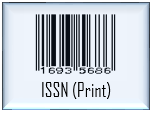TINGKAT KEPATUHAN ANTIHIPERTENSI DAN PENGONTROLAN TEKANAN DARAH PASIEN RAWAT JALAN RS PKU MUHAMMADIYAH BANTUL, YOGYAKARTA YANG MENDAPATKAN BRIEF COUNSELING-5A DAN SMS MOTIVASIONAL
(1) Fakultas Farmasi, Universitas Ahmad Dahlan, Yogyakarta, Indonesia
(2) Fakultas Farmasi, Universitas Ahmad Dahlan, Yogyakarta, Indonesia
(3) Fakultas Farmasi, Universitas Ahmad Dahlan, Yogyakarta, Indonesia
(*) Corresponding Author
Abstract
Keywords
Full Text:
PDFReferences
A Rodgers, C, L., S, M., 2000. Reducing the global burden of blood pressure-related cardiovascular disease. J. Hypertens. Suppl. Off. J. Int. Soc. Hypertens. 18, S3-6.
Al-Mehza, A.M., Al-Muhailije, F.A., Khalfan, M.M., and Al-Yahya, A.A., 2009. Drug compliance among hypertensive patients; an area based study. European Journal of General Medicine, 6 (1), 610.
Ambrosioni, E., Leonetti, G., Pessina, A.C., Rappelli, A., Trimarco, B., Zanchetti, A., 2000. Patterns of hypertension management in Italy: results of a pharmacoepidemiological survey on antihypertensive therapy. Scientific Committee of the Italian Pharmacoepidemiological Survey on Antihypertensive Therapy. J. Hypertens. 18, 16911699.
Meinema, J.G., Dijk, N., Beune, E.J.A.J., Jaarsma, D.A.D.C., Van Weert, H.C.P.M., Haafkens, J.A., and Zeeb, H., 2015. Determinants of adherence to treatment in hypertensive patients of African descent and the role of culturally appropriate education. PLoS ONE, 10 (8).
Kemenkes, 2013. Riset Kesehatan Dasar 2013. Badan Penelitian dan Pengembangan Kesehatan, Kementrian Kesehatan RI, Jakarta.
Mbuagbaw, L., Thabane, L., Ongolo-Zogo, P., Lang, T., 2011. The challenges and opportunities of conducting a clinical trial in a low resource setting: the case of the Cameroon mobile phone SMS (CAMPS) trial, an investigator initiated trial. Trials 12, 145.
Mehos, B.M., Saseen, J.J., MacLaughlin, E.J., 2000. Effect of Pharmacist Intervention and Initiation of Home Blood Pressure Monitoring in Patients with Uncontrolled Hypertension. Pharmacother. J. Hum. Pharmacol. Drug Ther. 20, 13841389.
Morisky, D.E., Ang, A., Krousel-Wood, M., Ward, H.J., 2008. Predictive validity of a medication adherence measure in an outpatient setting. J. Clin. Hypertens. Greenwich Conn 10, 348354.
Rantucci, MJ., 2007. Komunikasi Apoteker-Pasien (Edisi 2). Penerjemah: A. N. Sani. Jakarta: Penerbit Kedokteran EGC.
Ramli, A., Ahmad, N.S., Paraidathathu, T., 2012. Medication adherence among hypertensive patients of primary health clinics in Malaysia. Patient Prefer. Adherence 6, 613.
Yiannakopoulou, E.C., Papadopulos, J.S., Cokkinos, D.V., Mountokalakis, T.D., 2005. Adherence to antihypertensive treatment: a critical factor for blood pressure control. Eur. J. Cardiovasc. Prev. Rehabil. 12, 243249.
DOI: https://doi.org/10.24071/jpsc.00189
Refbacks
- There are currently no refbacks.
Copyright (c) 2016 Journal of Pharmaceutical Sciences and Community
Jurnal Farmasi Sains dan Komunitas (Journal of Pharmaceutical Sciences and Community)
Published by Faculty of Pharmacy, Universitas Sanata Dharma Yogyakarta

This work is licensed under a Creative Commons Attribution 4.0 International License.













.png)













